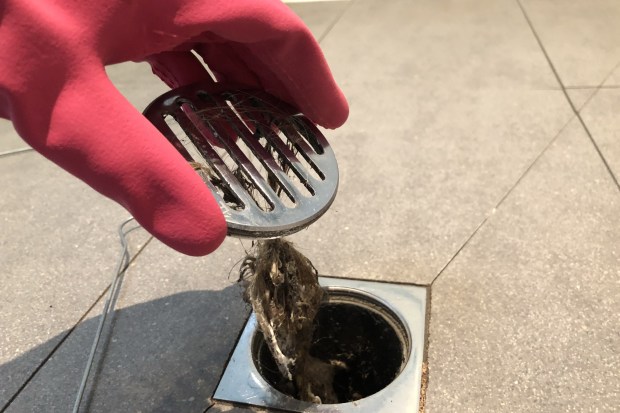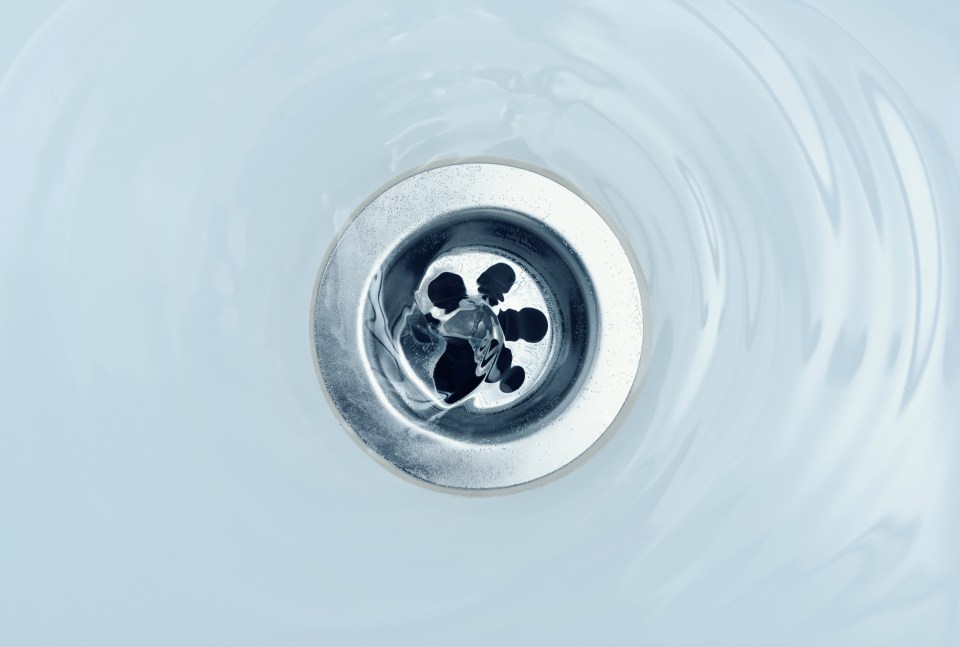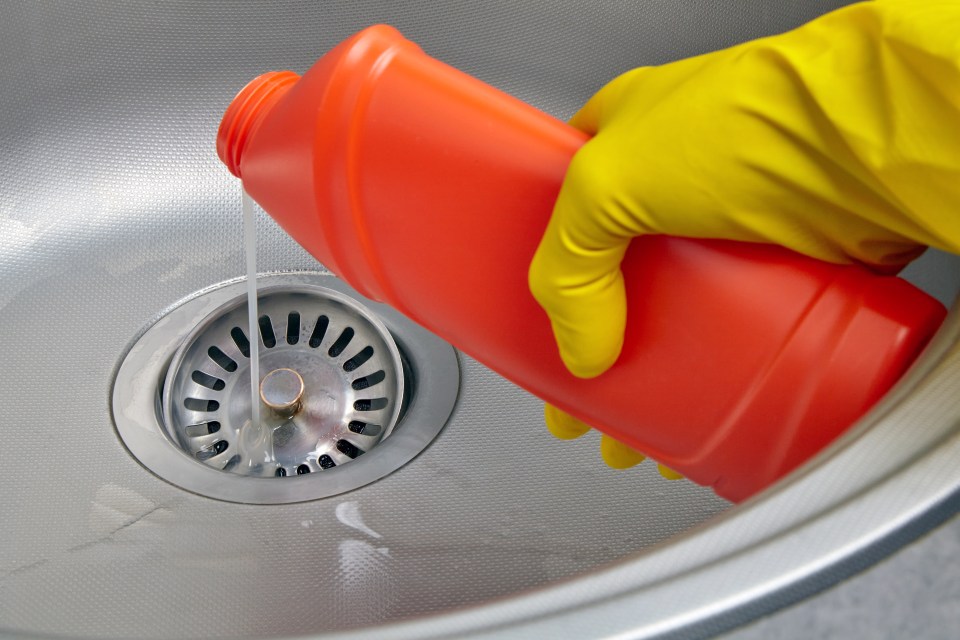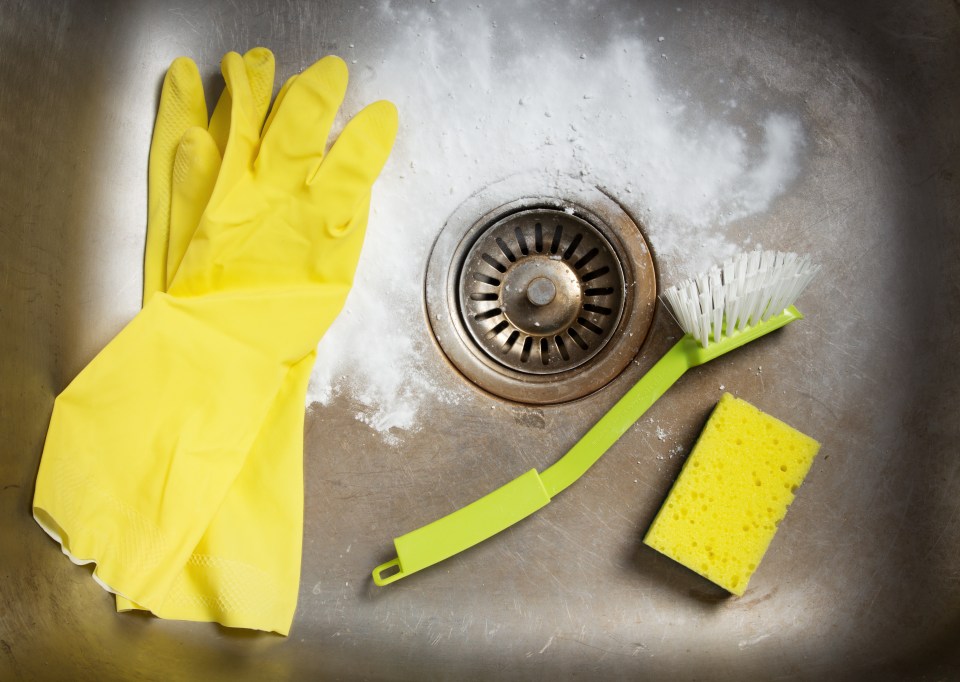THERE’S nothing more off-putting in the summer than the smell of drains in your bathroom or kitchen.
Not only is it hard to ignore, but the smell can linger for days, especially in the sunshine and warm weather.
That is because the summer heat creates the perfect storm for drain problems, which can turn the cleanest room into a source of bad smells.
Luckily, experts have shared their fool-proof top tips to stop your drains from smelling this summer.
And one handy trick only costs 35p – and you might even already have it in your kitchen cupboard.
Peter Jones, Director of specialist plumbing firm ADI Leak Detection, revealed that all you need is some white vinegar.
Explaining why the issue is worse in summer, he said: “Most people don’t realise that hot weather is like rocket fuel for the bacteria living in their drains.
“What starts as a minor issue in spring can become a real problem by July if you don’t know what to do about it.
I’ve seen homeowners spend hundreds on professional drain cleaning when a weekly cup of would have solved the problem
Peter Jones
“When it’s hot outside, the temperature in your pipes goes up too.
“Bacteria love warm, moist environments, so they multiply much faster in summer.
Summer weather also causes water in your drain traps – those U-shaped bends under sinks and in floor drains – to evaporate more quickly.
He added: “Those water traps are there for a reason. They create a barrier that stops sewer gases from coming up through your drains.
“When that water evaporates faster in hot weather, you lose that protection and start smelling what’s lurking down below.”
Peter said that white vinegar is the one product that beats expensive drain cleaners every time.
He revealed: “White vinegar is brilliant for this job.
“It’s antibacterial, it neutralises odours instantly, and it’s completely safe for your pipes.
“Best of all, it costs pennies compared to shop-bought drain cleaners.”
The trick is simple but effective, and Peter recommends mixing one cup of white vinegar with warm water.
“The vinegar kills bacteria on contact and breaks down any gunk that’s built up in your pipes.
“Plus, it’s eco-friendly and won’t damage your plumbing like some harsh chemicals can.”
Peter breaks down exactly how to do this properly for maximum effect.
- Mix Your Solution – Combine one cup of white vinegar with an equal amount of warm water. He says: “The warm water helps the vinegar work more effectively.”
- Pour Slowly Down Each Drain – Start with your sink drain, then move to floor drains if you have them. Pour the mixture slowly to ensure it coats the sides of the pipes.
- Let It Sit – “Give it at least 15 minutes to work its magic,” advises Peter. “The vinegar needs time to kill the bacteria and break down any buildup.“
- Flush With Hot Water Finish by running hot water down the drain for about 30 seconds to wash everything away.
Other ways to keep your drains fresh

PETER says that prevention is key for problems like this, as it’s easier to nip it in the bid than it is to get rid of it once it starts.
So he has shared additional tips to prevent problems before they take hold.
He suggests: “Keep your water traps topped up, especially if you have drains you don’t use often.
“Run water down them at least once a week to make sure that protective barrier stays in place.”
Peter also recommends cleaning drain covers regularly. He adds: “Hair, soap scum, and other debris collect around the edges.
“A quick wipe with antibacterial cleaner once a week makes a huge difference.”
Most importantly, Peter warns against letting grease and food waste go down bathroom sinks.
He said: “I know it’s tempting to rinse greasy face creams or makeup down the sink, but that stuff builds up and creates the ideal conditions for bacteria to thrive.”
The expert added: “What’s great about this vinegar method is its simplicity.
“You don’t need special equipment or expensive products, just something most people already have at home.
“I’ve been in the plumbing business for over a decade, and I’ve seen homeowners spend hundreds on professional drain cleaning when a weekly cup of vinegar would have solved the problem.
“During peak summer months, I recommend doing this every week, without fail.
“If you’re dealing with particularly stubborn smells, you can safely do it twice a week until the problem clears up.
“The key is consistency, as it’s much easier to prevent bacteria buildup than it is to get rid of it once it’s established.
“A few minutes of prevention each week could save you hundreds in repair bills down the line.”














